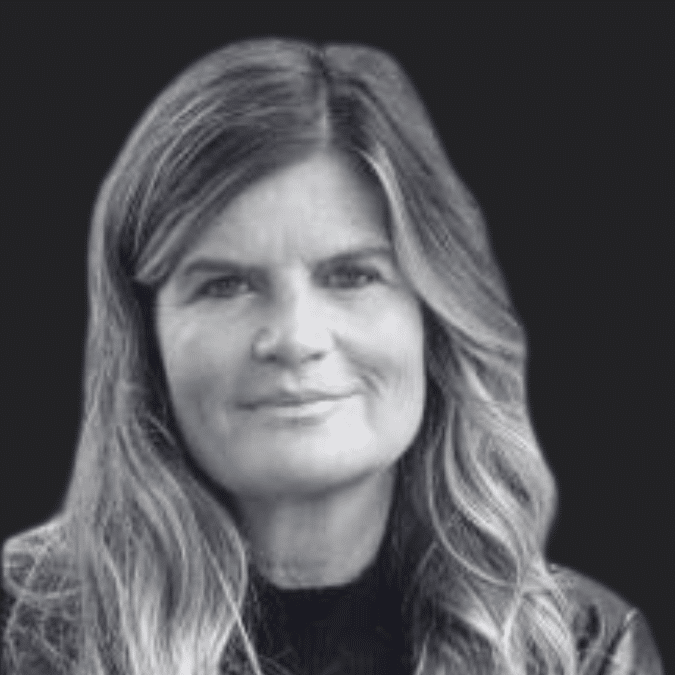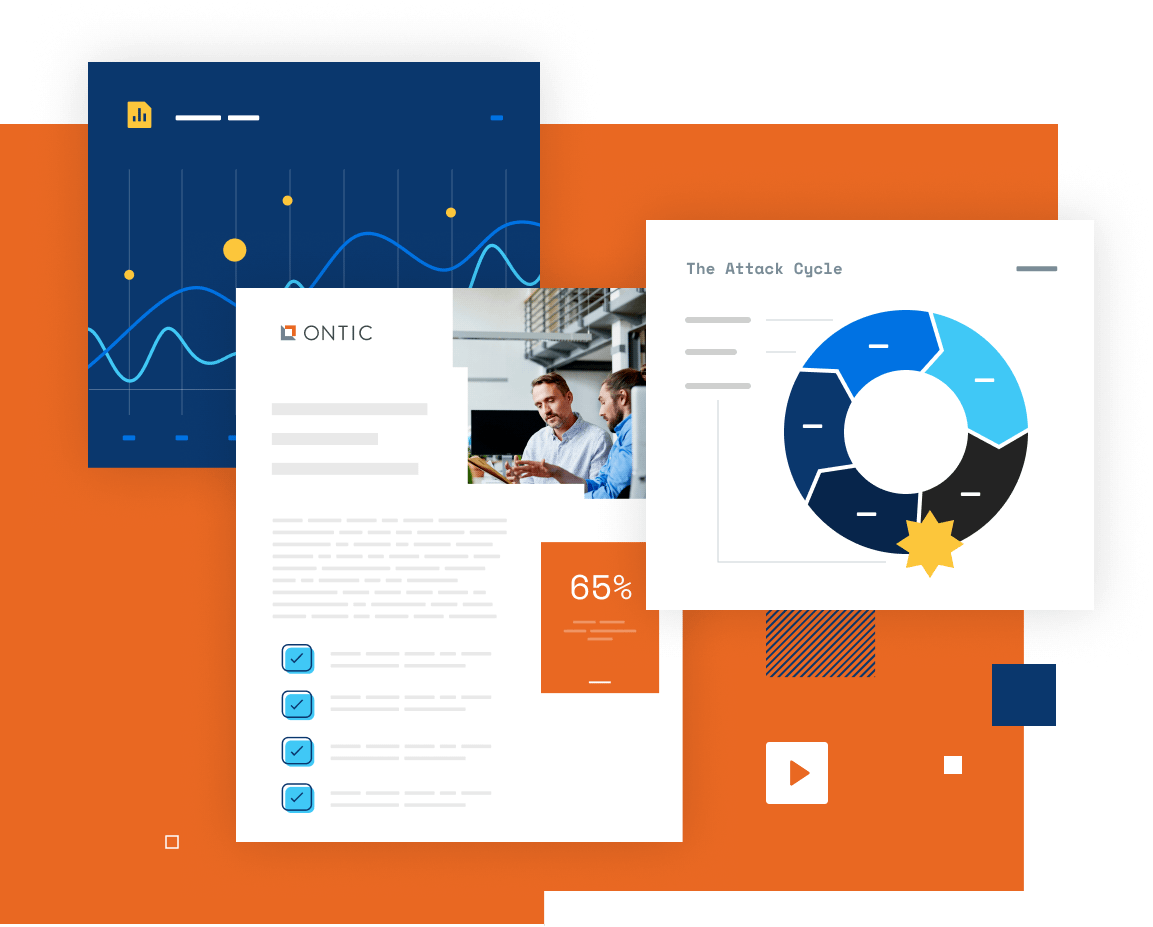July 23, 2025
Building Trust in Executive Protection: Strategies for Success with Nina Hobson
Connect with us wherever you get your podcasts
In this episode
Fred Burton sits down with Nina Hobson, a seasoned executive protection leader, to explore the evolving landscape of security for high-profile individuals. They discuss the critical role of intelligence, the impact of social media on modern protection strategies, and the importance of authenticity and trust in building client relationships. With over 20 years of experience, Nina shares her journey from detective work to global executive protection, offering valuable insights for professionals in the field.
Don’t forget to rate, review, and subscribe to the show!
0:00
Fred:
Hi, I’m Fred Burton here today with Nina Hobson. Nina is an experienced security leader with a global background in executive protection and investigations. She currently manages celebrity protection teams at Torchstone, often working on the ground to ensure both immediate safety and long-term strategy. A former head of security for an A-list client and decorated British detective, Nina brings over 20 years of experience and a deep commitment to client care and mission-driven work. Nina, welcome to the Ontic Connected Intelligence Podcast. It’s our pleasure. I’ve been looking forward to this. You’ve had an incredible career from policing in the UK to leading private security teams around the world. What led you to executive protection and what’s kept you in this field?
Nina:
Well, the truth is obviously the bodyguard, the movie and Kevin Costner, but it wasn’t quite like it is in Hollywood for sure. But I became really interested in just general keeping people safe. having an understanding of people’s privacy and their right to privacy. And when I look at the celebrity world in particular, obviously there’s an element of that that goes out the window with fame. But for me, keeping people safe and giving them the right to have their life that they deserve, I think is the thing that kind of drove me into this direction.
Fred:
How has your experience as a detective shaped your approach to executive protection, especially when it comes to risk assessment and threat management?
Nina:
You know, I think being a detective certainly gave me the groundwork and situational awareness, constantly asking questions, going with your gut instinct. Those are all things that we probably don’t think that we have or do particularly in exec protection because I think when you get to the level of an exec protection and we’ll hopefully get to talk later about the differences between being a bodyguard and an exec protection officer are different, but I think that the training that I had as a detective has certainly improved my abilities as an exec protection officer. And it’s also given me the groundwork to be who I am in this role.
Fred:
Well, you recently joined Torchstone as an executive protection manager. And obviously, I’ve known individuals that worked there for years, Frank Rodman and Scotty Stewart. We worked together back at the State Department. What drew you to the company and what excites you most about your role?
Nina:
I think you just said it, mentioning those two names, you know, the personnel and the skill set that Torchstone has is incredible. And I, sometimes I get in a room with them and I’m like, wow, I pinch myself and I’m like, you know, they’re just incredible. They’re not only incredible as professionals, they’re incredible people. And in this industry, sometimes you meet, you know, not so great people and not so experienced people and you meet people who promised you things that they actually don’t really deliver and same with the client. And I think Torchstone for me was the honesty and the integrity that they had as a company that made me very excited to be able to join them because they represent the same values that I have and that I know that we as a company give to our clients. When I came on board, we’d been talking for a while and I was with another company and wasn’t ready to leave that particular role. But when I came on board, I became really excited to, firstly, be a female in this industry is a huge privilege for me. And the position that Torchstone gave me, they allow me to use my skillset use my experience and are allowing me to develop an area that I can develop as I want to by mentoring and empowering other people. And that’s a huge privilege for me to be able to do that. And we want to grow the company and to be part of that is really exciting.
4:58
Fred:
Yeah, they’ve had amazing growth and just do tremendous work. I’d like to talk a little bit about protection philosophy and best practices. When it comes to protecting high profile individuals, what does effective executive protection look like today compared to, let’s say, 10 years ago?
Nina:
I think the big thing that everybody knows has changed over the last few years is social media and the fact that everybody knows where everyone is, what they’re having for dinner, where they’re having that dinner. And people feel, public feel that they have more access to, whether it’s a celebrity or whether it’s a high net worth person, they feel that they are more connected to those people. And that in itself creates more of an issue for exec protection officers. And we’ll use a celebrity for an example. You know, you say, we’re in this location, let’s not put that out on Instagram because that suddenly changes the whole dynamic of what we’re doing as exec protection officers. And 10 years ago, you know, we would do our advance and we would go to a location and we would be secure and we would keep it on the download that that person was there and we would do what we were expected to do. Now we have a situation where you can guide a client, always guide a client, they don’t always do as you ask and suddenly they’re telling the world, oh I’m at this hotel, oh I’m going here for dinner and suddenly that changes the landscape of what we’re doing because you know before we might only have one person there and suddenly we should have four and so social media for me is the the thing that is the pain in my backside. We can use it both ways though, because sometimes it gives us great intel, and we’ll mention the value of intelligence now in the world that we’re in. That really is the thing that for me over the last 10 years has drastically changed the world that we work in as exec protection officers.
7:11
Fred:
Nina, you’re known for really listening to clients with your storied career and tailoring protection to their lifestyle. How do you build that trust while still leading with security?
Nina:
Well, I think that obviously you can’t be trusted the minute you walk through the door. So you’re correct in saying it’s something that’s built, but certainly reputation goes a long way and being authentic. And that’s going back to Torchstone and what the values that I have, which are aligned with the company, being authentic, not making promises that you can’t deliver. And I’ve been involved in security for many, many years. There’s been many times where a client has been told something where in reality that’s never going to happen. And they soon pick up on that very quickly. For me, I like to lead from the ground. So if there’s a night cover that can’t be covered because someone’s sick or they have an issue with their children, I’ll go put my boots on and go cover that. And I think that shows not only to your team how much you value your position and your team, but it also shows the client that you’re prepared to be there at whatever cost it is to them, to cost to you. And I think they value that as well. And I’m a female, I’m a nurturer, I’m a very good listener, not necessarily always talking. So, you know, I think eventually a client understands that we are listening to them. But my other strength I think that I have is I’m I’m always prepared to give the client the absolute truth with regards to their security, because that’s ultimately what we’re there for. And there may be times when we’re carrying bags, or we’re bathing a dog, or whatever it is that we don’t say we do in exec protection, because we are a concierge service. But ultimately, it’s about protecting a person, protecting their reputation and protecting their assets. And I’ll always put those things first in a way that keeps the clients happy.
9:27
Fred:
Nina, what are some of the most common misconceptions clients or even industry peers have about executive protection?
Nina:
First one, you have to be a big male. You have to be six foot eight and an ex-footballer. That’s the first myth and very much so in the celebrity world. Women can’t do the job, also a myth. I’m an exec protection officer because I walked Kim Kardashian across the foyer of a hotel that doesn’t make you an exec protection officer. But I think that the myths are within public perception and also, as you say, in the industry. And I think that’s something that I certainly want to be involved in changing that perception. You know, I can’t afford security. Well, until you realize what the security is that you need, You don’t know whether you can afford it. It’s a waste of our money. I’ve heard that so many times. Well, how much of a value do you put on your life or your company assets or your reputation? And reputation, you know, is something that once it’s damaged, it’s very hard. Sorry. It’s very hard to, to undo that damage. So the value sometimes can’t be measured, but ultimately, We’re there to save lives, and that’s the ultimate.
12:29
Fred:
What are some of the unique challenges of managing a global executive protection program, particularly with high profile or celebrity clients?
Nina:
Look, I think that we touched on it briefly about, you know, telling the client actually what it is that they need. and not necessarily be listened to. And then we have to go, okay, well, plan B is, we’ve given you this, now we have another option. When you’re on a global scale, and I’ll use a celebrity for an example, you know, we’re traveling to locations, so you have to have all of the security ready on the ground. You sometimes are halfway to a location when a client changes their mind and decides to go somewhere else. So that’s always a challenge for sure. But also a celebrity has a global recognition. And so you’re not only thinking, you know, we’re walking into Hollywood and they may get noticed. We’re talking about somebody who gets out of a vehicle or off a jet and they globally are known or recognized for whatever their genre may be. And so you have to make sure that you are on point all of the time. And we talked basically about, you know, Instagram and social media and how suddenly you may have done a risk assessment and not assumed that there was going to be 10,000 people waiting at the airport. How do you deal with that? So it’s about being constantly on point. being flexible and ever changing. But there are always, always challenges, whether it’s celebrity or high net worth. Again, due to, you know, years ago, high net worth were never recognized, they would do their business. But now, again, social media, they, everyone knows where they live, everyone knows what public event they’re at. So they are actually celebrities in their own right. Don’t tell them that.
14:36
Fred:
No, trust me, I understand exactly what you’re saying. Nina, back in the day, your colleague at Torchstone, Scott Stewart, and I were part of the unit that put together the first protective intelligence program within the Diplomatic Security Service. So, as you look at the private sector, what does intelligence gathering and analysis look like in the day-to-day of executive protection today?
Nina:
We can’t do exec protection without intelligence. And that’s what I say to every client that I meet, but people’s perception is exec protection. Again, we, it gets messed up with the body guard kind of role. Um, it’s the biggest of next to the client and yes, it is the biggest next to the client, but it actually starts with intelligence and we have that on a daily basis. It’s an ongoing thing, you know, Torchstone has a GSOC, a 24 hour GSOC, which is constantly growing because of the need for intelligence. And that’s where we start. That intelligence could tell me that a client needs to have a report every day needs to monitor a particular person, a bolo, that we have an incident that may happen. Or it may be that we need to get together a team of 10 to look after this person around the clock. But without that intelligence on a daily basis, which is changing by the second, and that’s why our analysts and our intelligence Division is so important and so important to me when I’m talking to a client about their risks and their needs. And so without that on a daily basis, we really, really are not in the best position to provide security.
16:34
Fred:
Yeah, very well said and I’ve been fortunate enough to see your GSOC and it’s quite impressive. Nina, when you’re looking at building a team and the difficulty today with the travel and the 24 by 7 and the weekend work and so forth and the holidays, what qualities do you look for in an executive protection officer?
Nina:
So an exec protection officer, as far as I see it, I mean, they commit to the client, they commit to the company for all of those reasons. You know, they work long hours, they are prepared to travel, they do things that aren’t security related, if that’s, you know, within their daily routine with their client. We become, as exec protection officers, we become one of the most intimate roles with our clients. We have to know the good, the bad and the ugly in order to protect them. And I think to find a good exec protection officer, they have to be trustworthy. They have to abide by confidentiality. And we’ve all met the people who It’s all, you know, they’re working with a celebrity and they want the whole world to know. That’s the last thing that we actually want. You can’t avoid that situation because you’re with somebody in the paparazzi who are another huge issue for me when I’m looking after celebrities. But I think the qualities of the guys is so important. Using their own initiative. You know, they have to think sometimes ten steps in advance. and being a team player, because when you are a team, we work as a team. And it’s a cliche saying, will that person take a bullet for you? And that’s the ultimate question. You don’t have to like somebody necessarily. We’re all humans. We don’t all get on all of the time. But you certainly have to respect that person in the position that they are in. And so when I’m pulling together a team, which I’ve recently just done, actually, um, for Torchstone, there are a lot of people who do get interviewed and do apply who don’t meet the grade because our standards are so high. And I will never apologize for having high standards, both individually or for a company. My response to that is if you don’t meet those standards, then you’re in the wrong job or you’re on the wrong team. And I’m sure there’s plenty of teams you can go and find, but having people with integrity, being authentic, soft skills, you know, we talk about hard skills and there’s been a change in the industry. Um, you know, if you’ve got great hard skills or your ex this or your ex that you’re going to be great as an exec protection officer. And that’s not true. You know, it’s the same as just because you’re an ex cop doesn’t mean that you were a good cop. It doesn’t mean that you’re a great investigator. So I think the soft skills are so important now. so important for the clients, blending into an environment. We have teams now that you would never know. Use me as an example. I’m a middle-aged English woman. Who would expect me to be an exec protection officer? Now, sometimes that works really well, really well. Other times, I’m not the right person for a particular role. And I don’t take offense at that. And I think that’s one of the other things that exec protection officers need to do and do is leave the ego and be prepared for every situation that you are in. And I can’t thank a good protection team enough because they do put the client before everything else in their lives. They really do. And that’s a big ask. I love all of our guys. They’re all fantastic. So, yeah, we’re a family.
20:45
Fred:
That’s very well said, Nina. Your career has spanned public service, corporate security, and global protection. What advice would you give to professionals looking to move into executive protection or level up in the field?
Nina:
I think it’s really important to find a good mentor. So if you are in an industry and you know what your next level is and you want to move into exec production, try and find a mentor who has been in the industry for a long time and can guide you. Um, also take advice really well. So again, when we have people come for positions and they say, I’m an exec protection officer and we get into an interview situation and clearly they’ve never been an exec protection officer and sometimes don’t really even know what that is. My advice is go do your research. Look at Torchstone. Before you come for your interview, look at where our standards are, look at who we are, look at how we behave. And I always say to anyone who’s trying to get in through our door, if we can’t do this right now, this isn’t the right team for you because every team is different and every client’s needs are different. Don’t disappear. Keep talking to us. Keep asking us. Keep going on this course and learn. I’ve taken guys on who, you know, have just got the right personality, the right desire, the right wanting to make this their career. And you can teach some of the other things, but you can’t teach the character that’s needed. Um, so please, if you do want to do this, don’t get disheartened, find a mentor, talk to Torchstone. We’re always open to help and then keep working towards that goal.
Fred:
Nina, what’s one principle or lesson that stayed with you throughout your career? And how do you apply it in your work today?
Nina:
Oh, only one. That’s a hard question. But I think my thing for me personally is to go with your gut. Your gut instinct is often the right thing. And there’s so many times that we don’t go with our gut, we look at other things and we ignore that feeling inside. But for me, going with your gut and then backing yourself. Now we all make mistakes, you know, that’s, we’re humans and if we’re open and honest about those mistakes, then nine times out of 10 can be rectified. Sorry, I’ve taken two things instead of the one, but going with your gut and backing yourself are the things that have got me through a privileged career, a very privileged career. Not always smooth. It’s had challenges for sure, but those things have got me to where I am today for sure.
23:47
Fred:
Nina, as we close out, we always ask all of our guests this question. What does Connected Intelligence mean to you?
Nina:
I think that we’ve touched on this along the conversation, but it’s about bringing everything together and using every kind of intelligence tool that we have, not isolating one thing, not being an exec protection on the ground without using our intelligence, without looking at our data, without analyzing the data. And to me, it’s about bringing everything together to then provide the best strategy and solution to protect our client and the things that we are asked to protect.
Fred:
Awesome. Well, Nina, I can’t thank you enough for being on the Ontic Connected Intelligence Podcast. Thank you for having me. It’s been a pleasure. Our pleasure. Thank you again.
What you’ll learn
01
How social media has transformed risk management and the strategies required to protect high-profile clients in today’s hyper-connected world
02
How Nina emphasizes authenticity, reputation, and leading by example to foster trust with clients and teams
03
Why intelligence gathering and analysis are the foundation of effective executive protection and how it shapes daily operations
More about our guest

Nina Hobson is an experienced security leader with a global background in executive protection and investigations. She currently manages celebrity protection teams at TorchStone, often working on the ground to ensure both immediate safety and long-term strategy. A former Head of Security for an A-list client and decorated British detective, Nina brings over 20 years of experience and a deep commitment to client care and mission-driven work.
Connect with Nina



